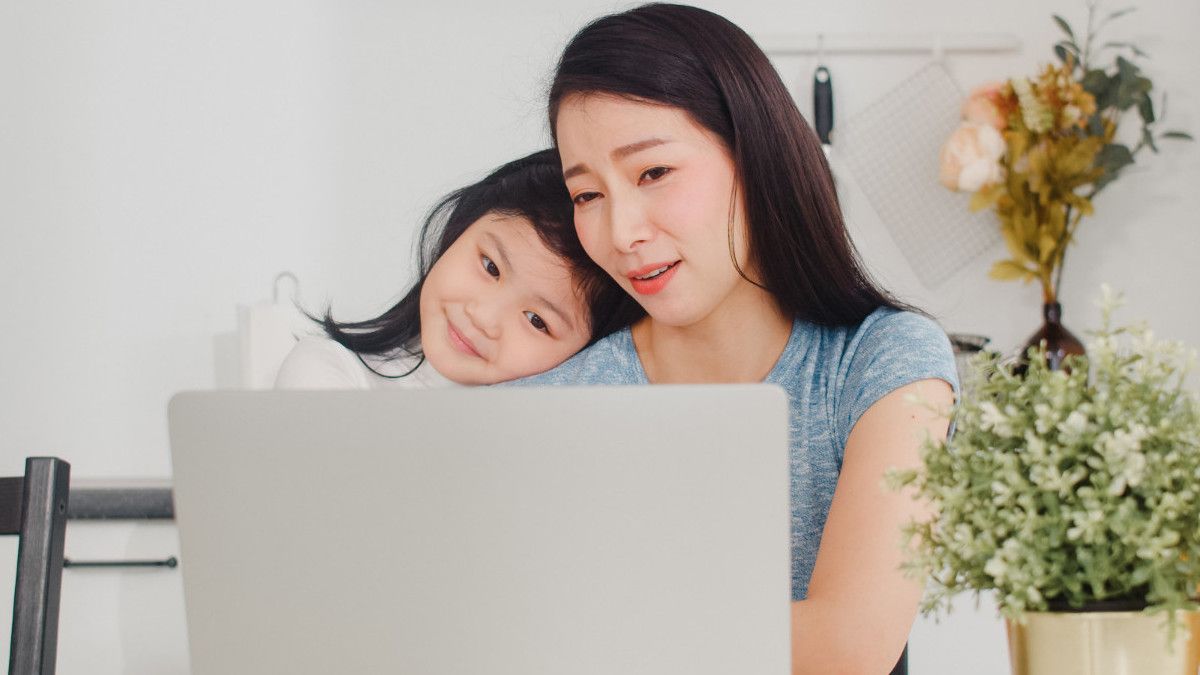The millennial generation is people born between 1981 and 1996. The previous generation, namely Generation X, Baby Boomers, and Silent Generation, has different situations that affect the parenting of their children.
Parents classified as Millennials, cited from KinderCare, Wednesday, February 15, they experienced some major social changes that were not experienced by the previous generation. According to Dr. Taking care of Gerson, professor sociology at New York University, many children are now growing up at home with two parents working or with one parent. In addition, added Gerson, mothers are more likely to work.
The following are the characteristics of millennial parents in caring for their children and are different from the previous generation.
Many misunderstand and think that millennial parents don't pay attention to their children because they are too busy. According to Gerson, research shows that's not the problem. Although many families now have two parents who work. In reality, parents are currently spending more time.
It's not just mothers who are more involved in their children's lives. The role of fathers has also changed, according to research from the Boston College Center and Family. Overall, millennial fathers are more enthusiastic about the task of raising children than previous generations of fathers. In fact, many millennials, especially those who have two parents who work, adhere to a 'joint care' approach, where responsibility for all things related to children is shed more or less the same.
Instead of an authoritarian discipline parenting pattern, millennial parents care for it with positive care. This was expressed by Gerson that there is a strong shift from the notion that strict discipline and physical strength are acceptable and even the best way to limit behavior. Parents today are more likely to strengthen positive behavior than to punish negative behavior.
Despite a lot of time for working hours, millennial parents still appreciate being with their families, including their children. They allocate time to eat together or in the midst of their uncertainty, they still spend dinner time with their families.
Gerson explained, regardless of income or level of education, they want to keep their children as safe as possible. No one complained, for example about their children. This is because it is easy to get the right information for example how to put children in cars or MPASI menus.
Millennials schedule everything, including free time. This reflects the current work that is more varied in working hours. For middle class families, time settings involve scheduling activities such as 'play dates'.
Regarding the development of children, the millennial generation knows very well that the beginning of children's development is very important. Parents today continue to sacrifice for their children and do their best to give whatever their children need to grow and find a stable future.
In terms of saving for the future, according to Forbes Magazine as much as 66 percent of millennials save for their children's college days. While only 47 generations X and 35 percent of Baby Boomer generations. Those are the sixth characteristics of the parenting pattern of the millennial generation that is different from the previous generation.
The English, Chinese, Japanese, Arabic, and French versions are automatically generated by the AI. So there may still be inaccuracies in translating, please always see Indonesian as our main language. (system supported by DigitalSiber.id)













